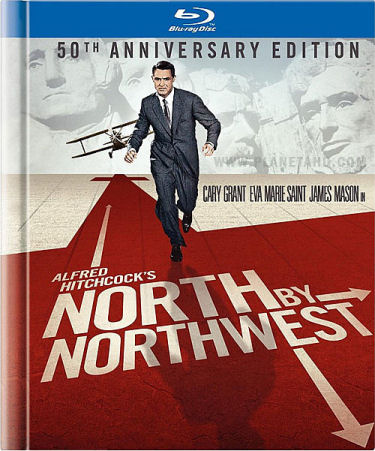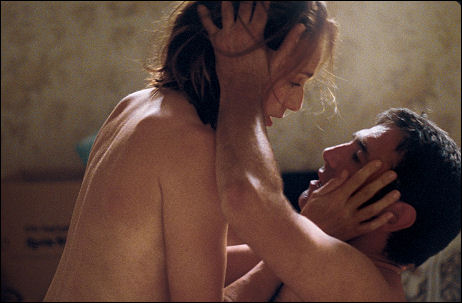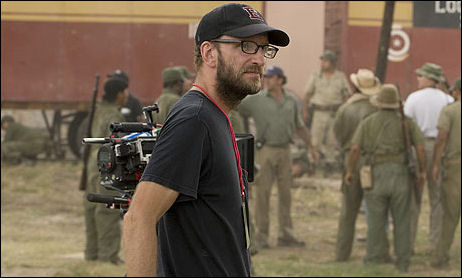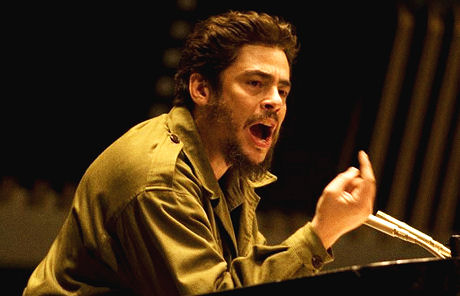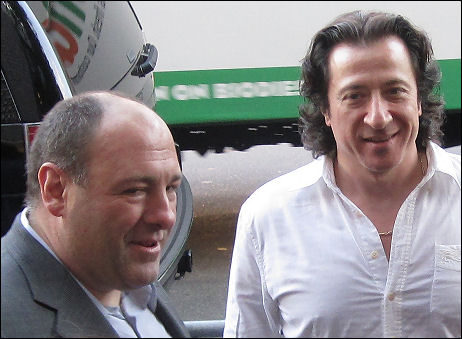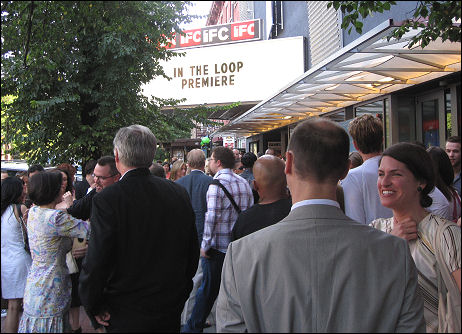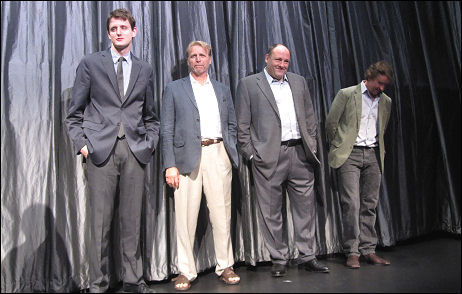Steven Soderbergh, clearly in a dispirited post-Moneyball mood, has told the Guardian‘s Henry Barnes that he’s feeling marginalized and roughed up and may be looking at a diminished future. “In terms of my career, I can see the end of it,” he says. “I’ve had that sensation for a few years now. And so I’ve got a list of stuff that I want to do — that I hope I can do — and once that’s all finished I may just disappear.
“I’m looking at the landscape and I’m thinking, ‘Hmmm, I don’t know. A few more years maybe. And then the stuff that I’m interested in is only going to be of interest to me.”
I buy this and I don’t buy this. The triple whammy of Che‘s box-office wipeout, the admired but under-patronized The Girlfriend Experience and the total collapse of the Moneyball project were jarring upsets, for sure. But Soderbergh is too much of a filmmaking nut to just ride off into the sunset like Alan Ladd‘s Shane or fade away like Gen. Douglas MacArthur. He was just in the one of those moods when Barnes called him. We all go there from time to time.
“It would all sound depressing if Soderbergh didn’t pepper his speech with fits of incredulous laughter,” Barnes writes. “Perhaps the last few years – capped by his recent run-in with Sony over his revised script for Moneyball, a baseball movie starring Brad Pitt, that saw him elbowed off the project – have left him punch-drunk.”
“‘Everybody got scarred by Che a little bit,’ Soderbergh says. ‘I don’t know how to describe it. It took a long time to shake off. It was just such an intense four or five months that it really…’
“There is a long pause. He speaks slowly and evenly.
“You know, for a year after we finished shooting I would still wake up in the morning thinking, ‘Thank God I’m not shooting that film.’
“Does he wish he hadn’t done it?
“‘Yeah.’
“Really?
“‘Yeah. Literally I’d wake up and think, ‘At least I’m not doing that today.'”
“Soderbergh knew Che (recently released on DVD in the UK, coming from Criterion sometime in the vague fall) would be difficult from the start. The project was brought to him by its eventual star, Benicio del Toro, and producer Laura Bickford, during the shooting of Traffic — the drug war docudrama that won Soderbergh the best director Oscar in 2001.
“Che was essentially Del Toro’s baby and Soderbergh, who was interested in the man but nowhere near as smitten as the actor, approached the movie cautiously, heading into the production with what he describes now as a ‘pretty significant sense of dread’.
“Lack of funding fuelled his fear. And the money wasn’t there partly because of Soderbergh himself. In the characteristically noble pursuit of authenticity he decided to film Che in Spanish, a decision that effectively blitzed any hope of finding significant investment within the US.
“‘It’s a film that, to some extent, needs the support of people who write about films,” he argues. “If you’d had all these guys running around talking in accented English you’d [have had] your head taken off.’
“Eventually European investors were tapped for $58 million (35 million quid) — a paltry figure considering the project’s ambition. As a result Soderbergh was forced to shoot extremely quickly to stay on budget. The two parts were filmed over 76 days, four days fewer than for his glitzy Vegas action comedy Ocean’s Eleven, an $85 million capitalist fat-cat of a movie in comparison with Che.
“‘It’s hard to watch it and not to wish we’d had more time,’ he says of Che. ‘But I can’t tell you that if we’d had more time it would be better — it would just be different. There was an energy and intensity that came out of working that quickly.’
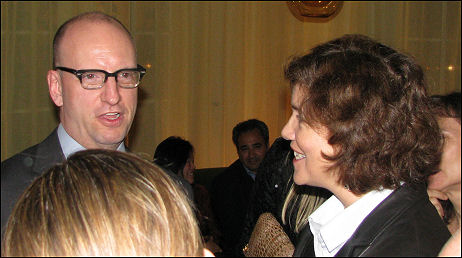
Steven Soderbergh, columnist Anne Thompson at an elite after-party following
Che screening at Mann’s Chinese, taken sometime last fall.
“Indeed, Che is easily Soderbergh’s best film since Traffic. But it was a terrible failure at the box office, grossing under $2 million worldwide. Soderbergh blames piracy (‘We got crushed in South America…we came out in Spain in September of last year and it was everywhere within a matter of days…it killed it.”) but it probably didn’t help that his film is a foreign-language marathon with an admittedly distant and impersonal lead.
“Che seems, in retrospect, like a glorious, sad aberration: a niche-audience epic it would be impossible to commission in these straitened times. Today, the willingness of the studios to take such a punt has all but evaporated – a fact that Soderbergh is more alive to than most.”


